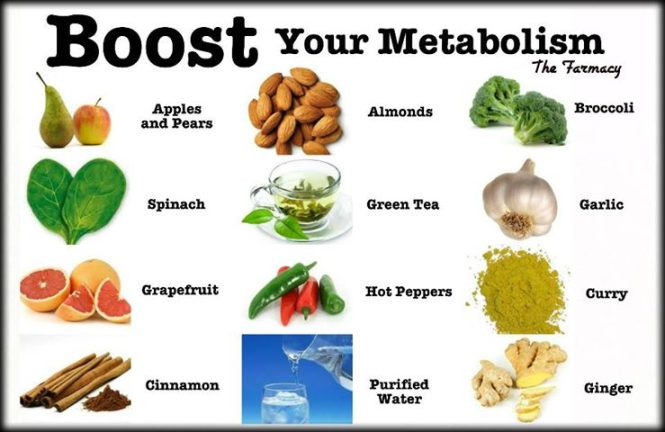

Unlocking your body’s natural metabolic powerhouse is achievable with simple diet tips for boosting your metabolism naturally. Imagine waking up feeling energized, with a body that burns calories more efficiently—no more feeling sluggish or frustrated by a slow metabolism! A healthy metabolism is essential for overall well-being, enabling your body to efficiently process energy from food, and supporting healthy weight management, and maintaining optimal energy levels. Many people face challenges like slow metabolism, hindering their weight loss goals and impacting their energy levels. The good news is you can boost your metabolic rate with natural lifestyle adjustments rather than resorting to drastic methods! This article will delve into practical and effective diet tips to elevate your metabolism naturally through simple lifestyle changes. We’ll explore actionable strategies for each area, providing you with actionable steps you can immediately implement. Get ready to uncover the secrets to a faster metabolism!
Prioritizing Mindful Eating for a Healthier Metabolism
Understanding the Role of Nutrition
Nutrition plays a critical role in influencing metabolic rate. The types of foods you consume significantly impact how your body processes nutrients and generates energy. Prioritizing nutrient-dense foods like fruits, vegetables, lean protein, and whole grains provides your body with the essential vitamins, minerals, and fiber it needs to function optimally.
Choosing foods rich in protein, like lean meats, poultry, fish, beans, and lentils, can help boost your metabolism. Protein requires more energy to digest than carbohydrates or fats, thus increasing your overall calorie expenditure. A balanced intake of macronutrients (protein, carbohydrates, and fats) is key to supporting a healthy metabolism.
Making Conscious Food Choices
Avoid highly processed foods, sugary drinks, and excessive intake of unhealthy fats. These foods often lead to energy crashes and disrupt metabolic function. Instead, focus on incorporating whole, unprocessed foods into your diet. Focus on portion control to prevent overeating, which can lead to weight gain and hinder metabolism. Listen to your body’s hunger and fullness cues—eat when you’re hungry and stop when you’re satisfied. Consider mindful eating techniques such as slowing down your eating pace and paying attention to the sensations of each bite.
The Importance of Regular Exercise for Metabolic Boost
Incorporating Physical Activity into Your Routine
Maintaining a consistent exercise routine is crucial for a naturally healthy metabolism. Exercise increases your body’s overall calorie expenditure and builds muscle mass, both of which significantly impact metabolic rate. Aim for a mix of cardiovascular activities like running, swimming, or cycling, and strength training exercises like weightlifting or bodyweight workouts. Studies have shown that incorporating both cardio and strength training can lead to more significant improvements in metabolic rate compared to either one alone.
Optimizing Exercise for Metabolic Benefits
Find exercises you enjoy to ensure long-term adherence. Mix up your workouts to prevent plateaus and challenge your body. Consistency is vital; even short bursts of activity throughout the day can contribute to your overall exercise goals. Consider incorporating high-intensity interval training (HIIT) into your routine for maximizing calorie burn in a shorter amount of time.
Regular exercise also enhances insulin sensitivity, which helps your body efficiently regulate blood sugar levels, a critical component of maintaining a healthy metabolism. Aim for at least 150 minutes of moderate-intensity or 75 minutes of vigorous-intensity aerobic activity per week, along with two or more days of muscle-strengthening activities.
Stress Management Techniques to Support Metabolism
Understanding the Connection Between Stress and Metabolism
Chronic stress can negatively impact your metabolism. Stress hormones like cortisol can interfere with the body’s natural metabolic processes, potentially leading to increased appetite, weight gain, and insulin resistance. These hormonal imbalances can cause disruptions in the body’s ability to process and utilize energy effectively, slowing your metabolism.
Practical Stress Management Strategies
Incorporate stress-reducing techniques into your daily routine. These may include meditation, yoga, deep breathing exercises, or spending time in nature. Sufficient sleep plays a critical role in managing stress. Aim for 7-9 hours of quality sleep per night to allow your body and mind to recover and replenish. Consider mindfulness exercises, which can help you stay present and reduce rumination about stressful situations.
Prioritizing Adequate Sleep for a Healthy Metabolism
The Crucial Role of Sleep in Metabolism
Sleep is an often overlooked factor in maintaining a healthy metabolism. Sleep deprivation disrupts your body’s natural hormone balance, potentially leading to elevated cortisol levels. Sufficient sleep allows your body to repair tissues and regulate various metabolic processes. Studies have shown that inadequate sleep can result in increased appetite, affecting food choices and potentially contributing to weight gain.
Optimizing Sleep Habits for Metabolic Health
Create a relaxing bedtime routine, such as taking a warm bath, reading a book, or practicing relaxation techniques. Maintain a consistent sleep schedule, going to bed and waking up at the same time each day, even on weekends. Optimize your sleep environment by ensuring your bedroom is dark, quiet, and cool. Reduce screen time before bed, as the blue light emitted from electronic devices can interfere with melatonin production, disrupting sleep patterns.
The Power of Hydration for a Boosted Metabolism
The Link Between Water and Metabolism
Adequate hydration plays a key role in boosting your metabolism. Water is essential for various bodily functions, including nutrient transport, cellular repair, and energy production. Staying adequately hydrated supports metabolic processes, leading to improved digestion and nutrient absorption. Water also helps to flush out toxins that may slow down your metabolism. Often, thirst is mistaken for hunger, which can lead to overeating and disrupting metabolic processes.
Practical Hydration Tips
Carry a reusable water bottle with you and sip on water throughout the day. Choose water over sugary drinks or other beverages with empty calories. Pay close attention to your body’s signals, recognizing when you are thirsty. Incorporate foods high in water content, such as fruits and vegetables, into your daily diet.
Frequently Asked Questions
How can I effectively boost my metabolism through natural diet tips?
Maintaining a balanced diet rich in protein, whole grains, fruits, and vegetables is crucial. Prioritize regular exercise, incorporating both cardio and strength training. Adequate sleep is essential for hormone regulation. Effective stress management techniques, such as meditation or yoga, can help. Hydration plays a critical role in supporting metabolic processes. By implementing these strategies, you can enhance your body’s ability to efficiently burn calories and support overall well-being.
What are some common mistakes to avoid when trying to boost my metabolism naturally?
Skipping meals, relying solely on fad diets, and neglecting sufficient sleep can hinder your progress. Consuming excessive amounts of processed foods and sugary drinks disrupts metabolic processes. Overtraining without adequate rest and recovery also impacts metabolic function. Understanding and avoiding these common pitfalls is crucial for successful and sustainable results.
In conclusion, boosting your metabolism naturally through simple lifestyle changes is achievable and profoundly beneficial for overall health and well-being. By prioritizing mindful eating, regular exercise, stress management, and adequate sleep, you can cultivate a healthier, more energetic you. Embrace these practical tips, and embark on a journey toward a vibrant and metabolically active lifestyle. Remember, consistency is key; small, sustainable changes add up to significant results over time. Consult a healthcare professional before making drastic dietary changes, especially if you have underlying health conditions. Are you ready to unlock your body’s natural metabolic powerhouse? Take the first step today!